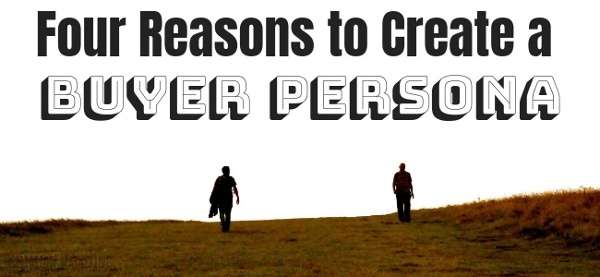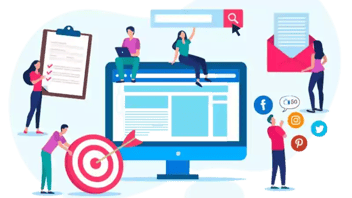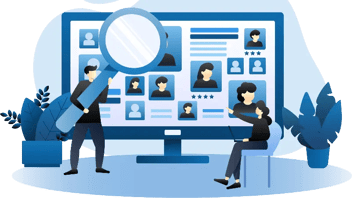We've all heard and used the adage "client is king." No matter what sort of business you're running, you likely understand the sentiment behind that phrase. What the client wants and needs drives the majority of the work you do. So, do you know your client? You probably wouldn't hesitate to say "yes." But think about it again. Do you know your client? Have you taken the time to research who they are, what their needs are, and how you can best reach them? For start-ups (and all businesses, really), it can be a challenge to designate time and resources for creating buyer personas. But you should.

First, what is a buyer persona? HubSpot helpfully defines a buyer persona as "a semi-fictional representation of your ideal customer based on market research and real data about your existing customers." Why is it helpful to create these "semi-fictional representations"? Here are four reasons.

You'll learn how to talk to your prospective clients.
Defining your ideal audience by researching and figuring out their demographic, age, habits, likes and dislikes, etc., will go a long way in ensuring you can communicate with these individuals successfully. It is a critical element of your marketing strategy. An article published by Forbes titled “Finding Your Audience: The Importance of Developing a Buyer Persona" makes a strong point. Namely,
“A persona can have a great impact on your marketing strategy. For instance, if you’re targeting an older demographic, you may want to spend less time and money on social media than if you’re targeting millennials.
A persona can tell you where your demographic spends time online, what resources they trust and what pain points they’re facing. This makes the persona development process crucial to your marketing success.”
In other words, if you know the people you aim to reach, you can figure out how to reach them most effectively. Don't annoy them (or miss out on reaching them all together) with marketing strategies that don't resonate. Having an accurate and well-thought-out buyer persona will help you prioritize content in your marketing strategy and meet them where they are and talk to them how they want to be talked to.
Your efforts are more focused and more successful.
It makes sense that if you know your target audience, thanks to a solid buyer persona, you'll also know what they want. Doing the work upfront to create a detailed buyer persona will save you time later. Why? Because once you have that ideal client particularized in front of you, you can focus on those particulars and how to get your target customers what they want.
When you know what needs your attention and can put your energy toward it, time spent on marketing efforts and working toward serving your customers will be time well spent. You won't get lost working on projects that drain your resources and become ineffective. The role of Buyer Personas is to get this customer blueprint in front of you, and if all your efforts relate to it, you'll be well on your way to further success: more contacts, leads, and customers.

You'll avoid confusion within your organization.
A surefire way to turn off potential customers is if your business looks disorganized or the right hand doesn't know what the left hand is doing. Not only does that come across as unprofessional, but it's also terribly inefficient and costly.
Creating a clear buyer persona and ensuring that every member of your organization understands and works with it in mind allows you to avoid confusion within your business. If everyone is on the same page, then your external communication efforts align with your marketing strategy as a whole, which aligns with your product development, etc., etc., etc.
You'll learn about your business and its solutions.
Most businesses who turn up their noses at creating a buyer persona argue that they already know their buyer and therefore putting in the time to create a hypothetical persona would be redundant and unnecessary.
On the contrary, in fact, in addition to the points we've made above, another huge benefit of creating a buyer persona is the fact that it'll likely help you learn something new about your business as it relates to your ideal customer. We mean you'll be able to see gaps in what your target market has and what they want. In many cases, you as a company can figure out how to fill those gaps by developing a product or service to satisfy the need. This allows you to become essential to your ideal customer, and they'll return to you repeatedly because you've proven you know what they want and how to get it for them.












Leave a Comment